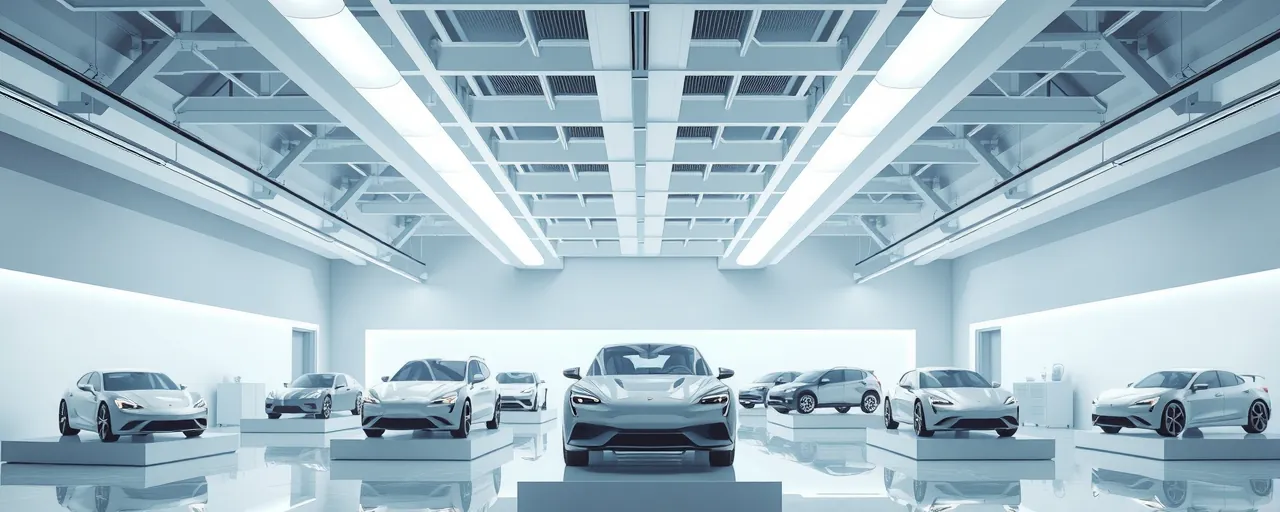Defending the Right to Choose
The U.S. Senate faces a defining moment. Led by Majority Leader John Thune, Republicans are preparing to vote on resolutions to block California’s sweeping clean vehicle mandates. These rules, backed by Clean Air Act waivers, force automakers to prioritize electric vehicles, inflating prices and narrowing choices for millions of Americans.
Governor Gavin Newsom argues his policies safeguard health and position the U.S. as a leader in clean technology. Yet, his approach burdens families with higher costs and risks ceding our auto industry to China. Senate Republicans are taking a stand to preserve the freedom of Americans to decide what they drive.
California has long overstepped its bounds, setting standards that affect the entire nation. Why should one state control the cars available to people in Texas or Ohio? The Senate’s vote offers a chance to restore federal authority and respect the needs of diverse communities across the country.
Decades ago, Presidents Nixon and Reagan supported California’s waivers to tackle specific air quality issues, not to impose nationwide rules. Today, those waivers have become a weapon for bureaucratic overreach. Republicans are right to challenge this misuse of power.
The consequences of inaction are stark. If California’s mandates prevail, they will reshape the auto market, drive up costs, and erode the economic independence that Americans value. Senate Republicans are fighting for workers, families, and the heartland, ensuring their voices matter.
The Hidden Price of California’s Vision
Newsom champions zero-emission vehicles as a solution for health and savings, but the reality is less rosy. His own estimates suggest Californians could face $45 billion in healthcare costs as they grapple with the steep price of electric vehicles. Gas-powered cars, reliable and affordable, remain a lifeline for millions. Why eliminate them?
Electric vehicles carry hefty upfront costs, often thousands more than traditional cars. While maintenance expenses may decrease over time, most families cannot afford a $50,000 vehicle. Newsom’s promise of $91 billion in economic benefits by 2040 feels distant when people are struggling to pay bills today.
Globally, China controls 70% of electric vehicle production. By mandating EVs, California’s policies deepen U.S. reliance on foreign supply chains. Senators like Shelley Moore Capito and Representative John Joyce warn this weakens American manufacturers, who face rising costs to comply. A stronger approach would prioritize domestic innovation and consumer choice.
Air quality is a real concern, especially in California’s smog-heavy cities like Bakersfield, which rank among the nation’s worst. However, mandating electric vehicles is not the only path forward. Since the 1970s, cleaner gas engines and hybrids have slashed emissions. A market-driven strategy respects these advances and avoids punishing consumers.
Newsom’s supporters, including Senators Tom Carper and Alex Padilla, claim EVs will cut CO2 emissions by 7 billion tons by 2055. Yet, this comes at the expense of higher prices and job losses in traditional auto sectors. Republicans propose a better way: protect public health while preserving economic vitality and personal freedom.
The Senate parliamentarian and Government Accountability Office assert that California’s waivers are not subject to the Congressional Review Act. Newsom’s team labels the GOP’s actions as unlawful. But Republicans are defending a principle: no single state should dictate national policy. The Senate must act to uphold this balance.
A Future Built on Freedom
The Senate’s vote is an opportunity to reclaim authority from unelected officials and coastal policymakers. Americans want clean air, but they also need affordable vehicles and thriving industries. Republicans, supported by leaders like Representative Troy Balderson, advocate for a balanced plan: reduce emissions, encourage innovation, and keep costs manageable without dictating what people drive.
Past successes, from the Clean Air Act of 1970 to the rise of catalytic converters, prove we can improve air quality without oppressive regulations. Reagan’s support for California’s waivers empowered local solutions, not national overreach. Today’s Republicans honor that legacy by demanding fairness and federal oversight.
Newsom’s policies risk tying the U.S. to China’s dominance in electric vehicles while pricing millions out of car ownership. His boast of 51 days of clean energy in California glosses over the grid’s reliance on fossil fuels during shortages. Senate Republicans are charting a path where Americans can breathe freely and drive affordably. Will the Senate seize this moment to protect our economic sovereignty and personal freedoms?
